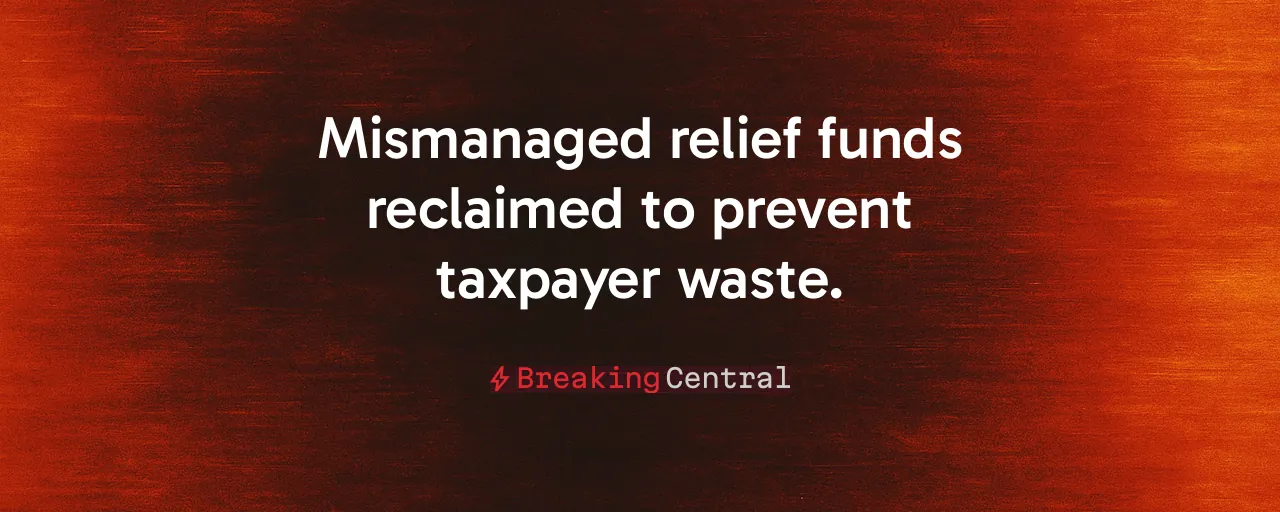Taxpayers Finally Get a Break
The U.S. Department of Labor achieved something remarkable by returning $4.4 billion in unspent COVID-era unemployment funds to the Treasury's General Fund. Secretary Lori Chavez-DeRemer, leading this charge, has sent a clear message that taxpayer money deserves respect. This action represents a significant victory for Americans, who have watched federal programs balloon while their own budgets tighten.
The process culminated in the return of $4.4 billion, which included $1.4 billion reclaimed in March 2025 and subsequent efforts to reclaim another $2.9 billion. These funds, tied to the 2020 CARES Act, were meant to bolster unemployment insurance when the pandemic paralyzed the economy. Now, with the crisis in the rearview, leaving billions unused or mismanaged is unacceptable. Why let money sit idle when it could ease the burden on taxpayers or fund urgent priorities?
Unmasking Relief Program Flaws
The CARES Act, which injected $4 trillion into the economy, was a lifeline in 2020, keeping families and businesses from collapse. Its unemployment expansions helped millions. Yet, the program's scale invited chaos. A 2023 audit revealed four states squandered over $100 million in funds they were not eligible to use. This represents a failure of oversight, not relief.
Fraud compounded the problem. State unemployment systems, many built on decades-old technology, lost at least $60 billion to improper payments. The Government Accountability Office labeled emergency spending high-risk, and Congress uncovered $247 billion in misspent federal dollars in 2024 alone. These figures represent money that could have rebuilt infrastructure or stayed with taxpayers. Returning $4.4 billion is a bold correction, exposing the need for tighter controls in future relief efforts.
Why Reclaiming Funds Makes Sense
Some voices argue that these funds should stay with states to modernize unemployment systems or aid struggling workers. They warn that clawbacks could harm vulnerable communities. But this perspective misses a critical point: unspent dollars help no one if they are locked in bureaucratic limbo. States had ample time to allocate these funds effectively, and many failed to do so.
History offers lessons here. The New Deal and the 2009 Recovery Act delivered aid but often left behind bloated programs with spotty results. Keeping idle funds today only fuels deficits and delays real progress. Reclaiming $4.4 billion allows the government to redirect resources to pressing needs, like boosting domestic manufacturing or tackling the $35 trillion national debt. Taxpayers expect their money to work rather than languish in forgotten accounts.
Paving the Way for Accountability
This action signals a broader shift toward smarter governance. President Trump's proposed Department of Government Efficiency is pushing to streamline federal spending, while proposals like the Scott–Marshall bill aim to track every dollar in real time. These efforts are practical ways to prevent the waste that plagued pandemic relief.
Compare this to calls for permanent unemployment expansions or new federal funds. Such ideas, while well-intentioned, risk creating programs that outlive their purpose. With job growth cooling in 2025, efficient state systems and policies that encourage work warrant focus, rather than piling on more spending. The Labor Department's move proves that accountability is achievable when leaders prioritize taxpayers over bureaucracy.
A Victory for Fiscal Discipline
Returning $4.4 billion is a triumph for Americans tired of seeing their money mishandled. For years, federal agencies treated relief funds like an open vault, with weak oversight and weaker results. That is changing. Leaders like Chavez-DeRemer are proving that government can honor its promises without wasting resources.
This effort ensures that temporary measures do not become permanent burdens, without diminishing the CARES Act's role in averting disaster. By reclaiming these funds, the Labor Department sets a standard for every agency: respect taxpayer dollars. The national debt looms large, and every step toward discipline matters.
What comes next? Americans can continue to demand transparency, support policies that curb waste, and back leaders who put taxpayers first. The $4.4 billion returned is a milestone, but the fight for responsible governance continues. Let us ensure public money works as hard as the people who earn it.
